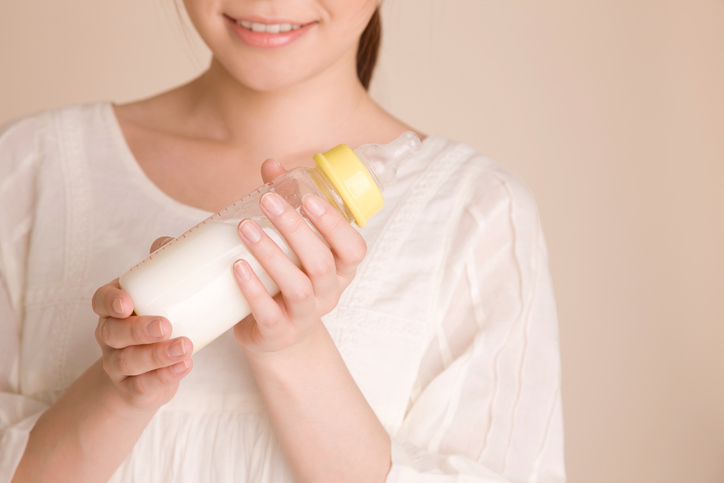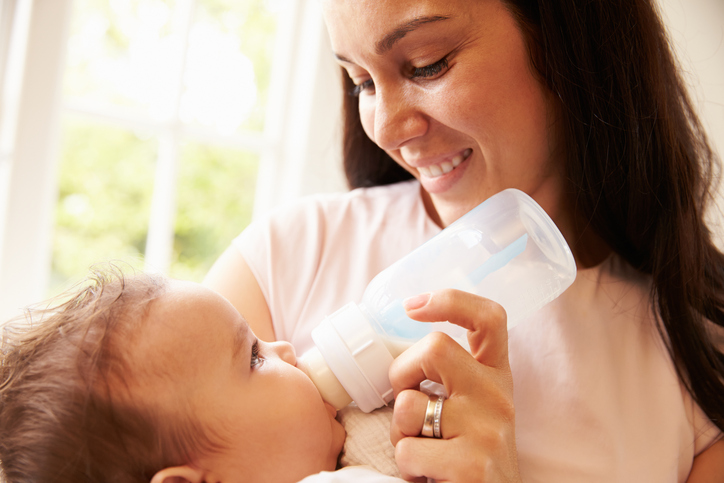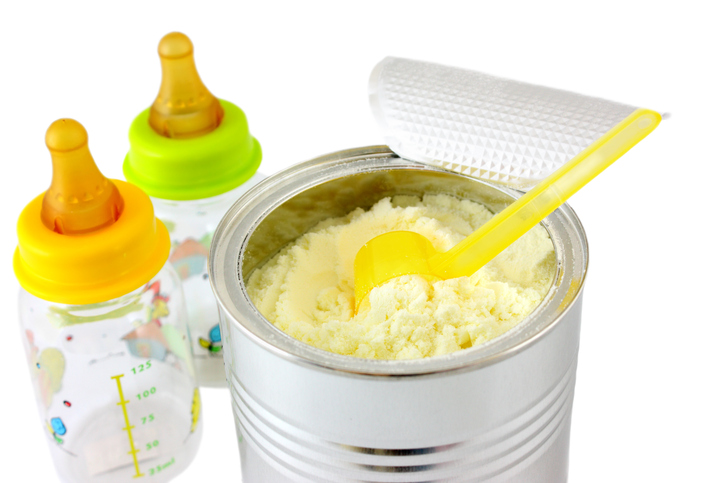We want to start out by stating the obvious. Breast milk is definitely the gold standard when it comes to feeding your baby.
Pretty much any doctor you talk to will recommend breastfeeding for the first six months, preferably the first twelve.
Breast milk is generally easier to digest than formula. The composition of breast milk offers your baby the ideal combination of nutrients and protection against allergies and illnesses.
Plus antibodies found in mother’s milk are passed on to your little one which boosts their immune system.
So while we may all agree, breast milk is best – that doesn’t necessarily mean breastfeeding is. The two things should be separate in your mind.
Many women, who are amazing moms with beautiful healthy kids, are not able to breastfeed for a variety of reasons. And they shouldn’t be shamed or judged because of it.
Being a mom is so much MORE than how a baby is fed. Doing what’s right for you and your baby’s unique circumstances is what’s important.
For those mothers who are unable to breastfeed, for whatever reason, choosing the right formula is a crucial decision. Every formula-feeding mom wants to know, what is the safest, best formula I can give my baby?
That’s where we can offer some guidance and help.

Ingredients To Avoid
When it comes to choosing a high-quality, safe infant formula…it’s more about knowing what you don’t want. You want to avoid the bad stuff; the chemicals and additives that can cause issues for your baby. Here’s a list of ingredients to watch out for:
Also In Beenke: 14 Essential Formula Feeding Tips
Human infants do not properly absorb palm oil. The American Academy of Pediatrics found that unabsorbed palmitic acid can remain in a baby’s gut and react with calcium to form “soaps” in a baby’s intestines. Which is not only gross, but it can negatively affect a baby’s health.
Instead, they use plant-based sucrose, which is banned in the EU and you want to avoid. Other sweeteners to avoid include maltodextrin, corn syrup, and brown rice syrup. The latter can contain up to six times the EPA’s safe limit for arsenic, so you seriously want to avoid brown rice sugar.
OK, so this isn’t actually in the formula itself…but think about it. If you go to all the trouble of getting organic, clean baby formula – why would you risk mixing it with questionable tap water?
Tap water can be full of chlorine byproducts, weed killer, solvents, lead, phthalates, BPA, etc. Do yourself a favor and use filtered water!
Baby formulas may also contain aluminum, which if not excreted can cause health issues. It’s hard to avoid trace amounts of the stuff, but if aluminum is a concern for you, making your formula with a silicon-rich mineral water can help. It’s believed to reduce the absorption of aluminum in your child’s gut.

Goat’s Milk Formula
One option for formulas that not a lot of folks talk about are goat’s milk formulas. Goat milk proteins form a smaller, softer, and looser curd in the gut than cow’s milk. This means it breaks down faster than cow’s milk.
Cow milk protein may be difficult to digest for some children and may cause mild to moderate symptoms such as colic, constipation, diarrhea, gas, bloating, chronic congestion, recurrent ear infections, and eczema.
Goat milk fats are smaller than cow milk fats. And, goat milk fat contains higher amounts of short- and medium-chain fatty acids compared to cow’s milk. This may make it easier to digest for some infants with a cow milk formula sensitivity.
Keep in mind, goat milk is not appropriate for children with a confirmed cow milk protein allergy (CMPA). If your child has a milk protein allergy, talk to your doctor about other formula options.
European Baby Formulas
Another option you may not have considered are European baby formulas. The EU has much tighter regulations that govern the making of baby formula. As a result, things like carrageenan and synthetic nutrients that can be found in some U.S. brands are banned in the EU.
The EU also has stricter organic and farming requirements. These tighter regulations mean that better ingredients tend to go in their formulas. In your search for the best formula for your baby, don’t forget to consider EU brands.

Our Favorite Organic Baby Formulas
Do What Works For You And Your Baby
Breast milk may be best, but a quality organic formula is a great alternative when full-time nursing isn’t a good option due to breastfeeding challenges.
Deciding to use formula depends on a lot of personal factors. It’s a tough decision for most moms and we support doing what is best for your family. There is no bottle shame happening here!
If formula is the right choice for you, be sure to choose a quality organic product free from chemical additives to give your baby the best formula possible.
In some cases, the greatest benefit from formula is the relief it gives moms that have been struggling. Formula can be help stop you from stressing, and let your focus on spending quality time with your baby.
SHARE these tips for finding the best formula on Facebook and Pinterest by clicking the buttons below.











